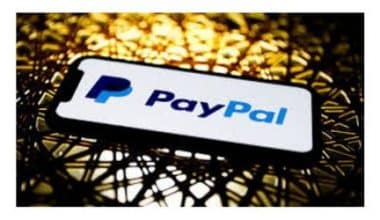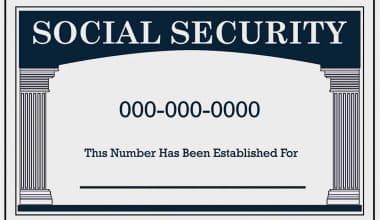An escrow payment is a secure method of conducting transactions in which a neutral third party holds onto funds until all of the terms of a contract have been fulfilled.
This type of payment system is often used in high-value transactions. This are such like real estate purchases, to ensure that both the buyer and the seller are protected.
In this article, we will explain how escrow payments work and the benefits they offer to both parties involved in a transaction.
We will also discuss the various types of escrow services available and when they are typically used.
Whether you are buying or selling a home, or engaging in any other type of high-value transaction, understanding the escrow process is important to ensure a smooth and successful transaction.
What is an Escrow Payment?
An escrow payment is a financial arrangement in which a third-party holds and regulates payment of the funds required for two parties involved in a given transaction.
For example, when buying a house, the buyer may put the funds for the down payment and closing costs into an escrow account.
The escrow company will hold these funds until the closing date. Then release them to the seller once all of the necessary documents have been signed and the title has been transferred to the buyer.
This ensures that the seller receives the funds only after the sale has been completed and all contingencies have been met.
It is also commonly used in online transactions as a way to protect both the buyer and seller.
The buyer’s payment is held in escrow until they have received and accepted the goods or services they purchased. The seller can be sure they will get paid once they have fulfilled their end of the agreement.
What is the Escrow Payment On a Mortgage?
An escrow payment on a mortgage is money that is set aside each month, along with the mortgage payment, to pay for property taxes and insurance.
The lender collects the escrow payment and holds it in an escrow account.
The lender then uses the money in the escrow account to pay the property taxes and insurance on the borrower’s behalf when they are due.
This way, the borrower does not have to come up with a large sum of money all at once to pay for these expenses.
What is the Purpose of Escrow?
The purpose of escrow is to protect the interests of both parties and ensure that the terms of the agreement are met before any funds or assets are exchanged.
Here are a few examples of how escrow can be used and its purposes.
#1. In real estate transactions
Escrow is used to hold funds for the purchase of a property, such as the down payment and closing costs.
#2. In online transactions
Escrow is used to hold payment from the buyer until the goods or services have been received and accepted.
#3. In legal disputes
Escrow can be used to hold funds or assets until a judgment has been made.
What Happens When You Pay Off Escrow?
When you pay off an escrow account, it means that you have satisfied the terms of the escrow agreement and have fulfilled your obligation to pay the funds that were held in escrow.
The exact process will depend on the type of escrow account and the specific terms of the agreement, but generally, the following steps occur:
- Your mortgage lender will review your escrow account. This is to ensure that all the payments have been made and that the balance is zero.
- Your lender will then issue a statement of completion and a refund of any overage or surplus funds.
- You will then be released from your escrow account obligation, and the lender will no longer have control over your escrow funds.
- If you have a mortgage escrow account, your lender may adjust your mortgage payments. This is to reflect the absence of escrow payments.
- Your lender will notify you of the escrow account is closed, and you will no longer be required to make escrow payments.
Is Escrow Payment Safe?
Escrow payments can be a safe way to complete transactions, as they provide a neutral third party to hold and regulate the exchange of funds.
Here are a few ways that escrow payments can enhance safety:
#1. Escrow protects the buyer’s funds
When buying a house or other high-value item, the buyer can feel confident that their funds will be protected. And further released only when the agreed-upon terms have been met.
#2. Escrow protects the seller’s payment
When selling goods or services, the seller can be sure they will get paid once they have fulfilled their end of the agreement.
#3. Escrow can be used to protect both parties in a transaction
In situations where there is a high level of trust but a need to have a neutral third party to hold and distribute the funds.
Escrow can provide a secure and neutral way to regulate the exchange of funds. Also, documents help reduce the risk of fraud or non-compliance.
It’s important to note that escrow can provide a level of security. It’s not foolproof, and it’s still important to do your due diligence when using escrow services.
To ensure your payment is safe, you should use a reputable escrow company. Ensure that you understand the terms and conditions of the escrow agreement.
Additionally, be sure to check the escrow company’s reputation, licensing, and regulations before using their services.
How Long can Escrow Hold Funds?
The length of time that escrow can hold funds can vary depending on the type of transaction and the terms of the escrow agreement.
In general, escrow is typically used for transactions that have a specific completion date or a set of conditions that must be met before the funds are released.
Here are a few examples of how long escrow can hold funds:
#1. In real estate transactions
Escrow is typically used to hold funds for the purchase of a property.
The length of time that the funds are held in escrow can vary. However, it’s usually from the time that the purchase agreement is signed until the closing date when the title is transferred to the buyer.
This period can range from a few days to several weeks, depending on the terms of the sale and the timing of the closing.
#2. In online transactions
Escrow is used to hold payment from the buyer until the goods or services have been received and accepted.
This process can take a few days to a few weeks, depending on the shipping and delivery times.
#3. In legal disputes
Escrow can be used to hold funds or assets until a judgment has been made. The length of time that the funds are held in escrow can vary depending on the complexity of the case and the speed at which the court is able to make a ruling.
Does Escrow Refund Money?
Yes, escrow can refund money in certain circumstances. The exact process for obtaining a refund from an escrow account will depend on the terms of the escrow agreement and the type of escrow account.
Here are a few examples of when escrow may refund money:
#1. If the transaction does not go through
If the terms of the escrow agreement are not met and the transaction does not go through. The escrow company may refund the money to the party that deposited it.
For example, if a real estate sale falls through, the escrow company may refund the buyer’s deposit to them.
#2. If there is a surplus
If the funds held in escrow are more than the amount required to complete the transaction, the escrow company may refund the surplus to the party that deposited the funds.
For example, if the closing costs for a real estate sale are less than the amount held in escrow, the escrow company may refund the surplus to the buyer.
#3. If the escrow account is closed
If the escrow account is closed, for instance, if you paid off your mortgage, the escrow company may refund any remaining funds to the party that deposited them.
Initial Escrow Payment at Closing
An initial escrow payment at closing is a deposit made by the borrower to the lender at the time of closing on the mortgage loan.
This deposit is used to establish the escrow account for the property taxes and insurance.
The initial escrow payment typically includes two months of property taxes and insurance, as well as any other required escrow-related fees.
The amount of the initial escrow payment can vary depending on the lender and the specific loan program. However, it is generally calculated as a percentage of the total estimated annual property taxes and insurance.
How To Lower Escrow Payment
There are several ways to lower your escrow payment on a mortgage:
#1. Shop around for lower insurance and property tax rates
If you can find a lower rate for your homeowners insurance or property taxes, it can lower your escrow payment.
#2. Increase your down payment
A larger down payment can lower your mortgage payment, which can in turn lower your escrow payment.
#3. Request an escrow analysis
Ask your lender to review your escrow account. This can lead to a reduction in your escrow payment if the lender determines that the account is overfunded.
#4. Refinance your mortgage
Refinancing your mortgage can lower your escrow payment if it results in a lower mortgage payment.
#5. Consider a government-insured loan
Some government-insured loans like FHA and VA loans have lower escrow requirements which can lower the escrow payment.
It’s important to remember that lowering your escrow payment could also mean that you will have to pay more out of pocket for property taxes and insurance when they come due.
Conclusion
In conclusion, an escrow payment is a secure and reliable payment method where a neutral third party holds onto the funds until the conditions of a transaction are met.
This system provides peace of mind for both the buyer and seller. Which helps ensure that the transaction is completed as agreed upon.
By understanding how escrow payment works, individuals can ensure a secure and hassle-free transaction in a variety of situations. This includes buying and selling goods online to real estate transactions.
Related Articles
- 15-Year Mortgage Rates: Comparison
- QUALIFICATIONS FOR MORTGAGE: Basic Requirements In 2023
- PAYMENT DATE: 2023 Dividend, SSI stimulus & SSA Stimulus Dates (Updated)
- How Not to Pay Taxes Legally: Detailed Guide






